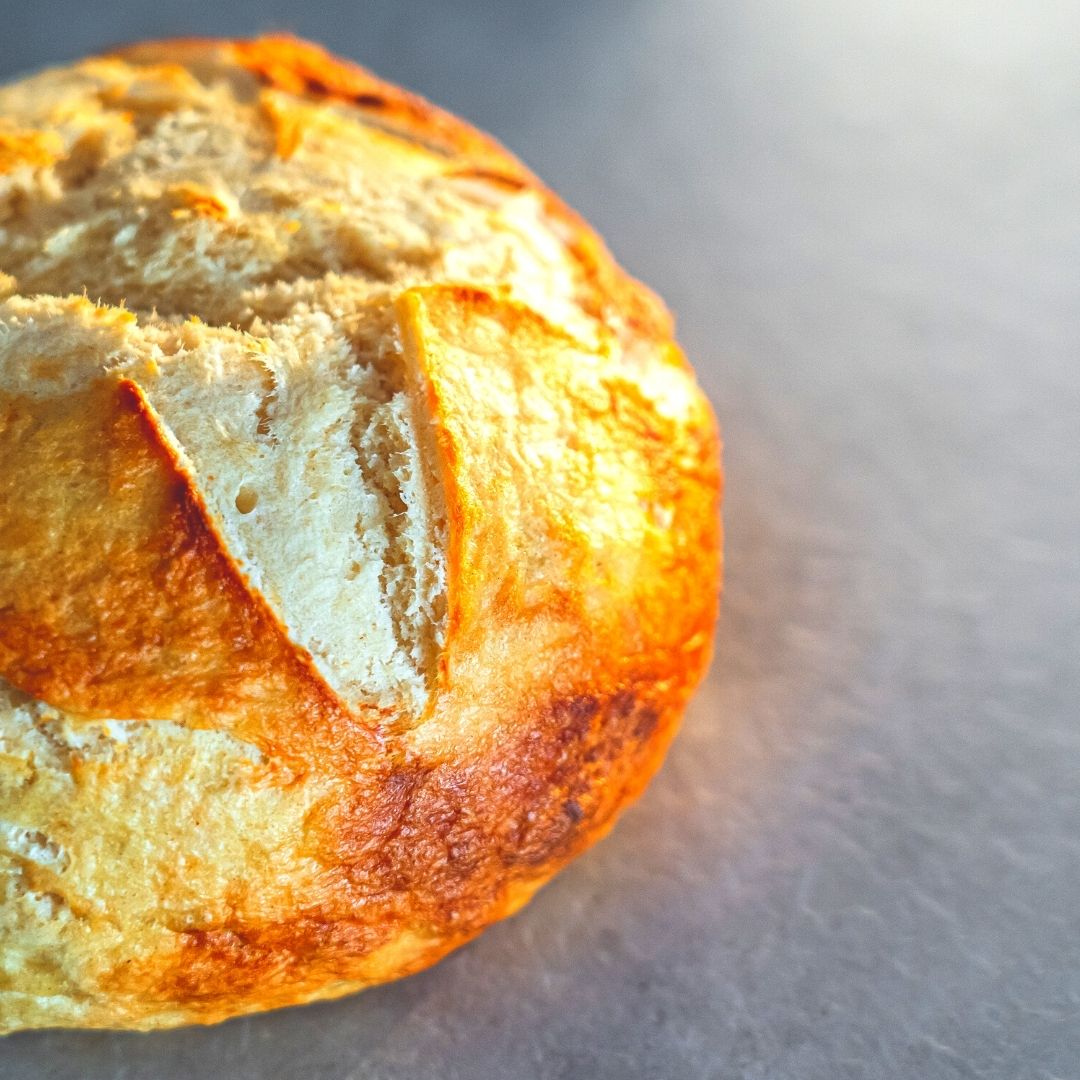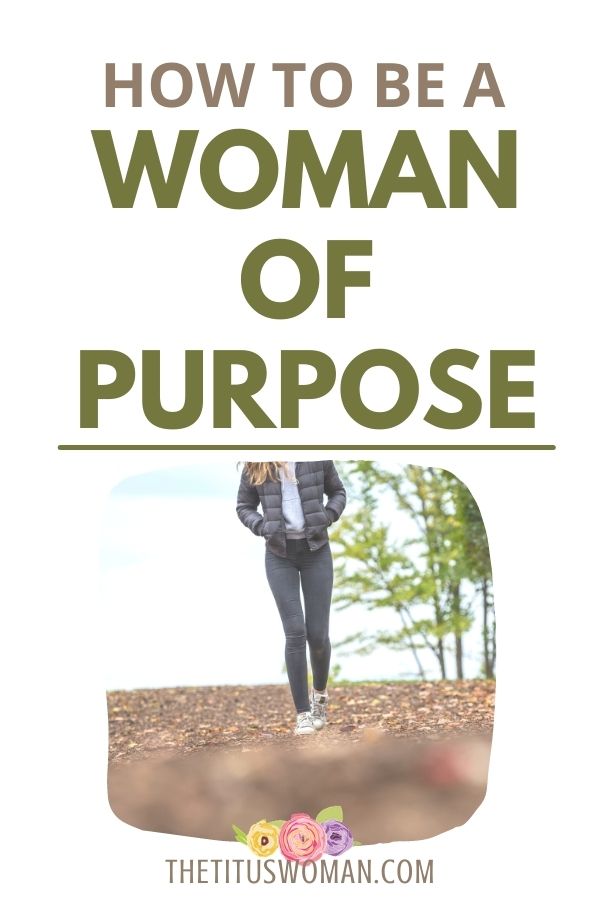Don’t you want to make a difference?
For much of my early adult life I was haunted by my overwhelming desire to make a difference for Christ. To be a woman of purpose. To figure out how to make my life matter.
I thought I had to do something extraordinary or be someone special. What I didn’t know then is that God can make a woman of purpose out of all of us.
An unlikely woman of purpose
At a dark time in Israel’s history, God sent the prophet Elijah to confront the wicked King Ahab and his wife Jezebel.
Elijah courageously walked into the court of King Ahab and announced that a drought―a sign of judgement― was about to begin and would last until Elijah spoke the word that would end it. Since a drought would pose a great threat to the northern kingdom, naturally Elijah’s weather report angered the king.
At God’s direction, Elijah immediately skipped town. Like many of God’s men, Elijah was about to be trained by the Lord in the desert.

God sent Elijah to a brook where there was water. He also sent ravens to feed Elijah both morning and night.
Soon, though, the brook began to dry up. What Elijah had depended on for his survival was about to disappear. Like most of us when God removes our sense of security, Elijah felt desperate.
What Elijah didn’t know then but would soon discover is that God Himself is the source of everything we need. “But the water I give them,” he said, “becomes a perpetual spring within them, watering them forever with eternal life” (John 4:14, TLB).
An unlikely source of help
When the water was gone, God sent Elijah to a widow in the Gentile city of Sidon. It was an illogical thought to seek help from a widow, since widows in the ancient world were notoriously poor. It was also inconceivable to think that a hated Gentile would help a Jewish man.
Sure enough, the widow of Sidon had almost nothing left. The drought had left her with a handful of flour and a tiny bit of oil. Her plight was desperate and her situation seemed hopeless. In fact, she and her son had resigned themselves to die from starvation.
But the Bible says God spoke to the widow’s heart. So, when Elijah explained that God would multiply her flour and oil, “for the Lord God of Israel says that there will always be plenty of flour and oil left in your containers until the time when the Lord sends rain and the crops grow again!”(1 Kings 17:14, TLB), she had a choice to make.
Would she trust God? Would she take the little bit of flour she had left and make bread for the prophet like he asked her to do?
The woman did.
She took all she had left and made the prophet a small loaf of bread.

From that point forward, God miraculously filled her containers of flour and oil with all they needed until the drought finally ended. With a little bit of flour and a heart filled with faith, God taught a prophet, a widow and her son to feast on the Bread of Life.
Yes, I am the Bread of Life! When your fathers in the wilderness ate bread from the skies, they all died. But the Bread from heaven gives eternal life to everyone who eats it. I am that Living Bread that came down out of heaven. Anyone eating this Bread shall live forever; this Bread is my flesh given to redeem humanity.”
An extraordinary source of faith
The faith of the widow of Sidon was so extraordinary, she was mentioned by Jesus 900 years later (Luke 4:25). She was an ordinary woman, yet she became a woman of purpose.
How can we, like the widow of Sidon, become a woman of purpose?
How to become an extraordinary woman of purpose:
1. Be a risk-taker.
Since Elijah’s news of the drought had angered the king, the widow of Sidon risked punishment by taking him in. She also took a huge risk by giving up her last piece of bread.
Most of us want to play it safe. To do things that are logical and practical. We want to count the cost and weigh the risks to make sure we’ll come out on the winning side. We’re sure God wouldn’t dream of calling us out of our comfort zone.
The problem is, the Scriptures never tell us to play it safe or to hold onto the things we think we need. In fact, we’re instructed to do the opposite. To be willing to do the illogical. To rely on God rather than our own resources.
Then he called his disciples and the crowds to come over and listen. “If any of you wants to be my follower,” he told them, “you must put aside your own pleasures and shoulder your cross, and follow me closely. If you insist on saving your life, you will lose it. Only those who throw away their lives for my sake and for the sake of the Good News will ever know what it means to really live. “And how does a man benefit if he gains the whole world and loses his soul in the process?
(Mark 8:34-36, TLB)
Stop loving this evil world and all that it offers you, for when you love these things you show that you do not really love God; for all these worldly things, these evil desires—the craze for sex, the ambition to buy everything that appeals to you, and the pride that comes from wealth and importance—these are not from God. They are from this evil world itself. And this world is fading away, and these evil, forbidden things will go with it, but whoever keeps doing the will of God will live forever.
(1 John 2:15-17, TLB)
2. Be a giver of God’s grace.
The widow of Sidon was a Gentile and Elijah was an Israelite, yet she took him in rather than harbor resentment for the normally harsh treatment Gentiles were accustomed to. She chose to see Elijah not as an Israelite, but as a man of God.
We live in a culture where building walls, boxing in our tribes, and canceling anyone who doesn’t agree with our political persuasion, lifestyle, or theological doctrine is the norm. But God calls us to “treat others as you want them to treat you” (Luke 6:31, TLB).
Rather than be offended by our differences, we can choose to see every single person on earth as someone created in the image of God. A person God deeply loves. When we do that, we’re reminded to extend the same grace to others that God has given to us.
Don’t repay evil for evil. Don’t snap back at those who say unkind things about you. Instead, pray for God’s help for them, for we are to be kind to others, and God will bless us for it.
(1 Peter 3:9, TLB)
“warn those who are lazy, comfort those who are frightened, take tender care of those who are weak, and be patient with everyone. See that no one pays back evil for evil, but always try to do good to each other and to everyone else”
(1 Thessalonians 5:14-15, TLB)
3. Be a faithful responder.
Because the widow of Sidon listened to God, she sensed His instruction to open her home to Elijah, and give up her last crumb of bread. As a result of her obedience, she was blessed with flour and oil that lasted for the duration of the drought.
We can’t hear God if we’re not listening to Him. As much as I love Bible study, I’m constantly tempted to learn about the Scriptures without doing the more important work of obeying them. Remember, Satan knows the Scriptures. But he doesn’t obey them. So did the Pharisees, Scribes, and Saduccees. They knew the Scriptures, but they never took them to heart.
We can’t afford to study just to get smarter. The truth of God’s Word must travel from our heads to our hearts. That’s how we know we truly belong to Him, “for this is what love for God is: to keep His commands” (1 John 5:3, TLB).
And remember, it is a message to obey, not just to listen to. So don’t fool yourselves. For if a person just listens and doesn’t obey, he is like a man looking at his face in a mirror; as soon as he walks away, he can’t see himself anymore or remember what he looks like. But if anyone keeps looking steadily into God’s law for free men, he will not only remember it but he will do what it says, and God will greatly bless him in everything he does”
(James 1:22-25, TLB)
The widow of Sidon reminds us that God can take an ordinary, unlikely woman and turn her into an extraordinary woman of purpose. We, too, can have lives that will be remembered for generations and that will impact eternity. Like the unlikely widow who was a blessing to Elijah and to God, we can choose to be risk-takers, givers of God’s grace, and faithful responders.


